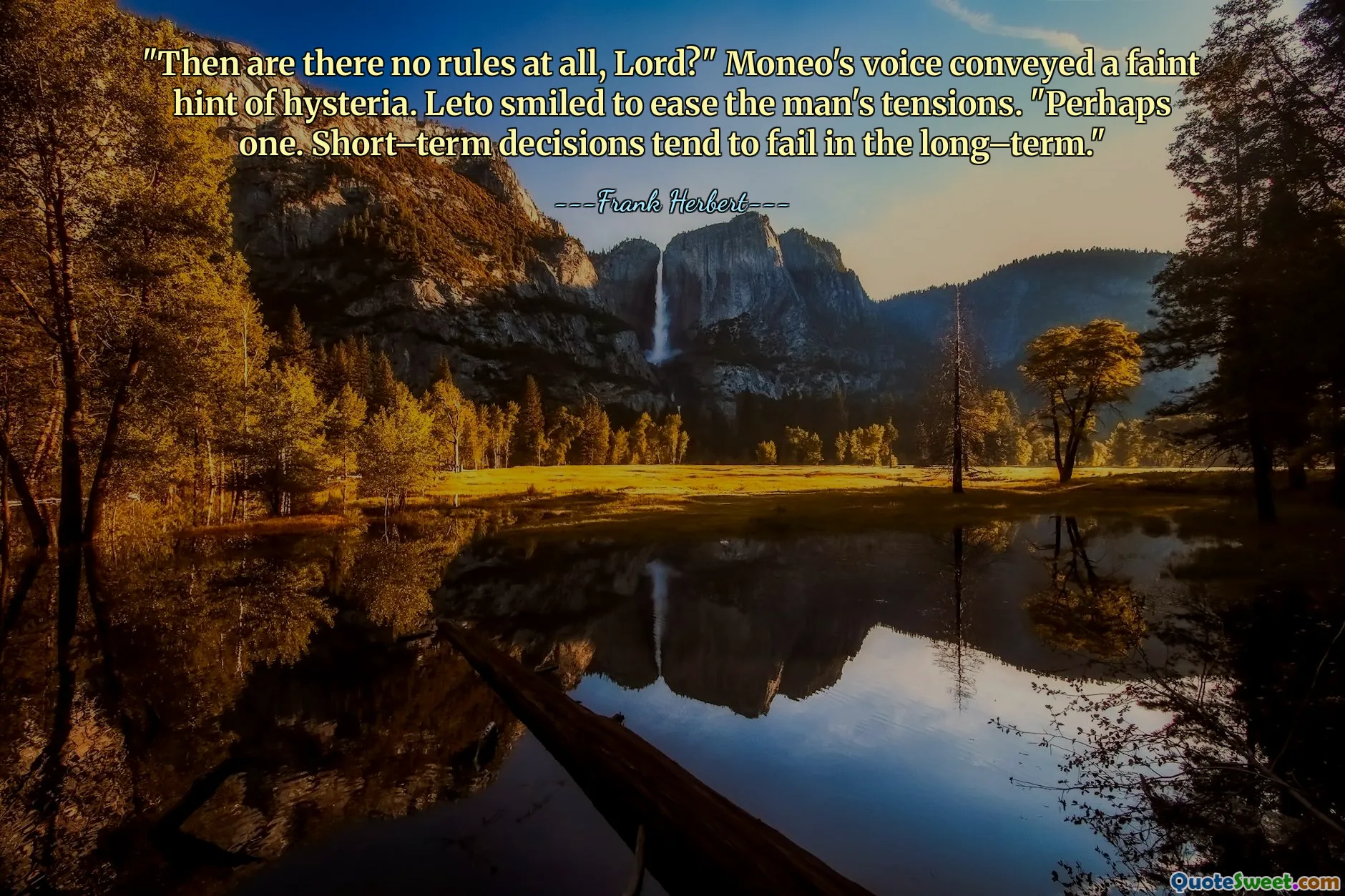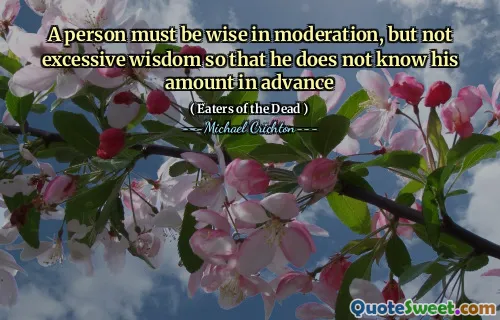
"Then are there no rules at all, Lord?" Moneo's voice conveyed a faint hint of hysteria. Leto smiled to ease the man's tensions. "Perhaps one. Short–term decisions tend to fail in the long–term."
This quote from Frank Herbert encapsulates a profound truth about decision-making across all spheres of life, from personal choices to governance and business strategy. The interaction between Moneo and Leto highlights the tension between anxiety or urgency and the call for patience and wider perspective. In moments of stress, it's common to seek immediate fixes or quick wins, often overlooking the consequences that may unfold over time. However, Leto's gentle reminder that "short-term decisions tend to fail in the long-term" challenges this impulse, advocating for foresight and a broader temporal view.
This concept is particularly relevant in contemporary society, where immediate gratification frequently overshadows sustainable progress. We live in an era of rapid information dissemination, fast-paced innovation, and often a culture of instant results. Yet, as Herbert suggests through his character, true wisdom lies in recognizing that long-lasting success and stability are rarely born from ephemeral choices. The emphasis on long-term thinking fosters resilience, ethical considerations, and a deeper understanding of impacts spanning generations.
Moreover, by mentioning "Perhaps one [rule]," the quote implies a minimalist yet profound guideline for life and leadership. In a world teeming with complexity and competing values, this single rule acts as a beacon, reminding us to look beyond the immediate horizon and weigh the ripples our actions send through time. Embracing this principle invites a more mindful and strategic approach to challenges, cultivating trust and durability rather than fleeting victories.
Ultimately, this quote transcends its narrative context, serving as a universal lesson on patience, vision, and the enduring consequences of our decisions—a message that echoes with particular urgency today.











